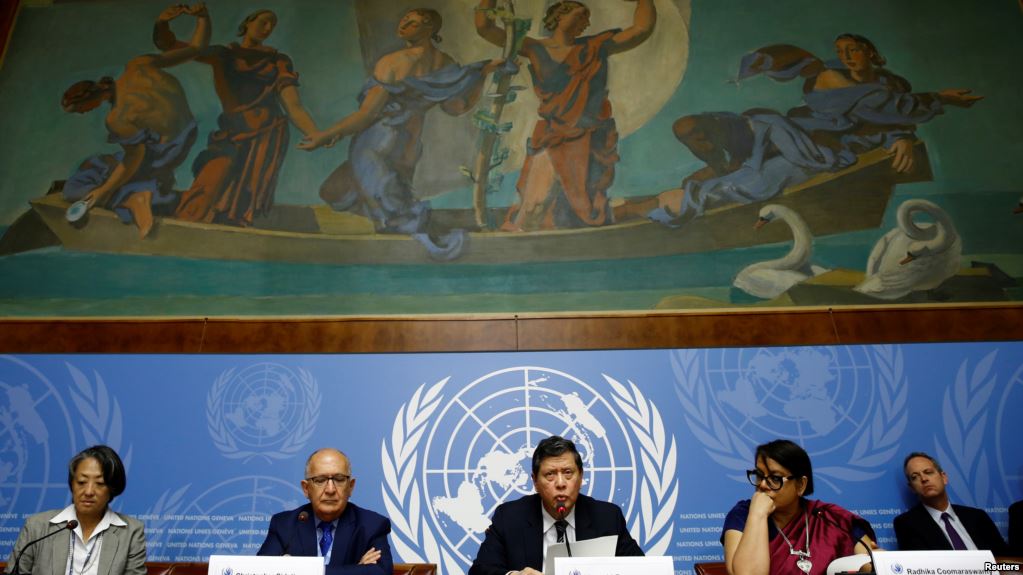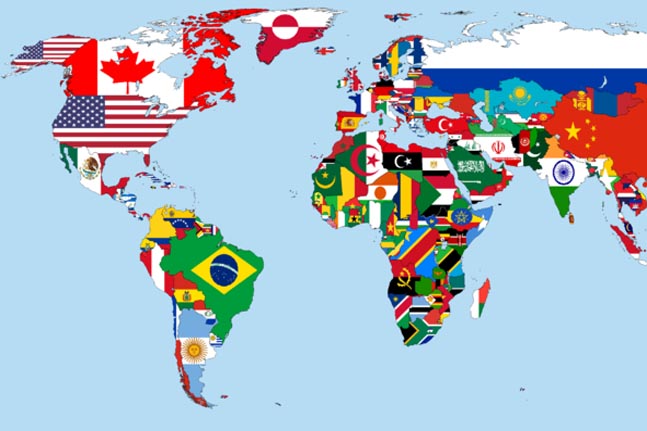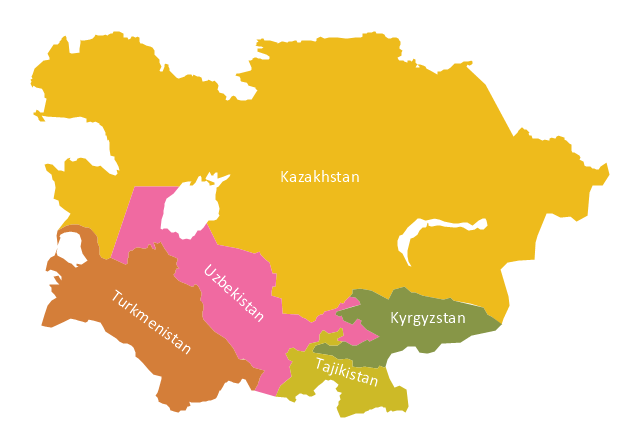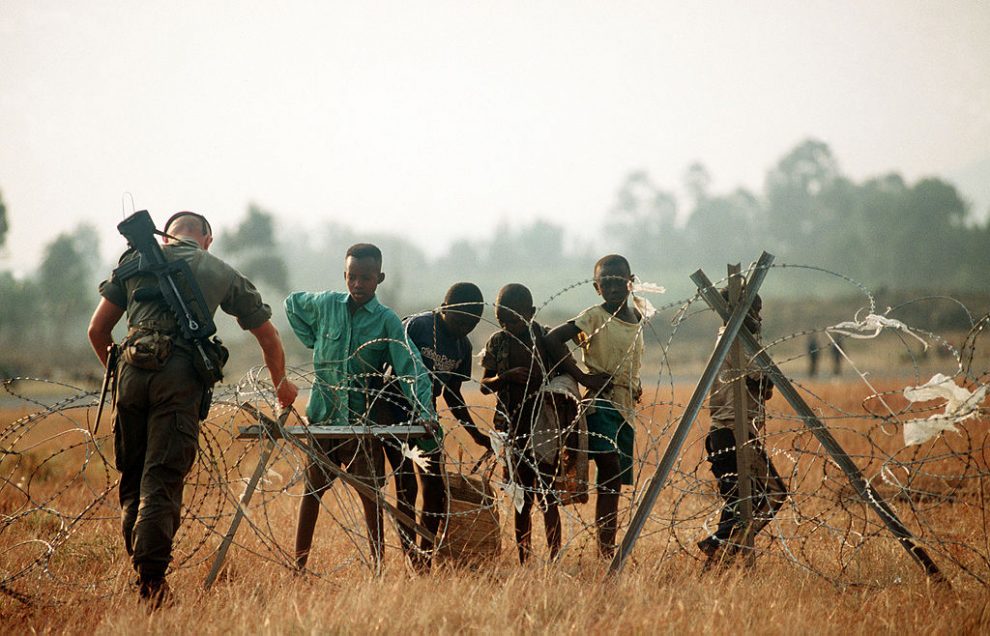
UN Human Rights Council on 24 March 2017 with its resolution 34/22 under the title of “Situation of human rights in Myanmar” established an independent international fact-finding mission on Myanmar.[1] The said mission is entitled with the task of establishing “the facts and circumstances of the alleged recent human rights violations by military and security forces, and abuses, in Myanmar, in particular in Rakhine State, including but not limited to arbitrary detention, torture and inhuman treatment, rape and other forms of sexual violence, extrajudicial, summary or arbitrary killings, enforced disappearances, forced displacement and unlawful destruction of property, with a view to ensuring full accountability for perpetrators and justice for victims”.[2] The President of the Council appointed Marzuki Darusman (Indonesia) as chairperson and Radhika Coomaraswamy (Sri Lanka) and Christopher Sidoti (Australia) as members. A secretariat was recruited by the Office of the United Nations High Commissioner for Human Rights (OHCHR).[3]
The said mission presented the fact-finding report to the UN Human Rights Commission during its Thirty-ninth session (10–28 September 2018) on 27 August 2018. According to the paragraph 14 of the report, “The Mission strictly adhered to the principles of independence, impartiality and objectivity. It sought consent from sources on the use of information, ensuring confidentiality as appropriate. Specific attention was paid to the protection of victims and witnesses, considering their well-founded fear of reprisals.” The Mission assessed the facts “in light of international human rights law, international humanitarian law and international criminal law, as applicable in Myanmar.” [4]
The report of the mission eloquently explains the legal framework of the genocide in its paragraphs from 84 to 87 and states the following:
“Genocide occurs when a person commits a prohibited act with the intent to destroy, in whole or in part, a national, ethnical, racial, or religious group, as such. The Rohingya are a protected group under this definition. Their treatment by the Myanmar security forces, acting in concert with certain civilians, includes conduct which amounts to four of the five defined prohibited acts; (a) killing, (b) causing serious bodily or mental harm, (c) inflicting conditions of life calculated to bring about the physical destruction of the group in whole or in part, and (d) imposing measures intending to prevent births.” (Paragraph 84)
The report refers to the critical element of the crime as “genocidal intent” (Paragraph 85) and in Paragraph 87 states the following:
“The Mission concluded, given these considerations on the inference of genocidal intent, that there is sufficient information to warrant the investigation and prosecution of senior officials in the Tatmadaw (Myanmar military) chain of command, so that a competent court can determine their liability for genocide in relation to the situation in Rakhine State.”.
In the “Main Conclusions and recommendations” section of the Report, the fact-finding Mission draws attention to the following priority areas for action:
- “The international community, through the United Nations, should use all diplomatic, humanitarian and other peaceful means to assist Myanmar in meeting its responsibility to protect its people from genocide, crimes against humanity and war crimes. It should take collective action in accordance with the United Nations Charter, as necessary” (Paragraph 103 a)
- “The Security Council should ensure accountability for crimes under international law committed in Myanmar, preferably by referring the situation to the International Criminal Court or alternatively by creating an ad hoc international criminal tribunal. Further, the Security Council should adopt targeted individual sanctions, including travel bans and asset freezes, against those who appear most responsible for serious crimes under international law. It should also impose an arms embargo on Myanmar.” (Paragraph 103 b)
We understand from the press release of UN Human Rights Council that “A fuller report, containing detailed factual information and legal analysis will be published and presented to the Human Rights Council on 18 September”.[5]
The fact-finding report on Myanmar brings to the fore once again the importance and relevance of the 1948 Convention on the Prevention and Punishment of the Crime of Genocide. As it was mentioned in the AVİM analysis of last year on the occasion of the 9 December “International Day of Commemoration and Dignity of the Victims of the Crime of Genocide and of the Prevention of this Crime”, the adoption of the said Convention came immediately after the horrific Holocaust and the Second World War.[6]
It was stated and elaborated in the AVİM analysis that “the Convention was originally signed by 41 state parties. Currently, 149 states are parties to the Convention. According to its Article XIII, the Convention is deemed to ‘come into force on the ninetieth day following the date of deposit of the twentieth instrument of ratification or accession’ to the UN Secretary-General. The Convention took force on 12 January 1951.” Turkey is among the pioneering twenty countries that deposited the notification of ratification or accession to the Convention and secured its official entry into force.
The Convention was ratified by Turkey on 23 March 1950 by the Law No: 5630 and the said law was published in the Official Gazette No: 7469 on 29 March 1950. Unlike number of other state parties, Turkey did not declare any reservation to the Genocide Convention and since then in number of occasions among the pioneer UN member states for the combat against the crime of genocide. Turkey’s support to the International Criminal Tribunal for the Former Yugoslavia (ICTY) and the International Criminal Tribunal for Rwanda are examples in this respect.
Turkey’s this coherent and moral stand is also valid for the plight of Rohingya Muslims. As it was underlined in the Press Statement of the Ministry of Foreign Affairs of Turkey on the occasion of the release of the UN fact-finding mission on Myanmar, “Turkey has spared no effort to ensure that the international community pay necessary attention to this issue since the onset of this crisis. In this context, the International Rohingya Consultation Meeting was organized on July 6th, 2018, in Ankara in order to exchange views among like-minded countries and international organizations active in the region to discuss the ways and means to prevent further deterioration of humanitarian conditions of Rohingya”.[7]
All this shows us that Turkey does its best for a world free from cruel and odious crime of genocide. To eliminate this odious crime, the international community should continue to work on the solid legal basis of the 1948 Convention on the Prevention and Punishment of the Crime of Genocide, avoiding all efforts to water down or cast doubts to its authority by introducing cases not covered by the convention
*Photo: Voice of America
[1] “Resolution Adopted by the Human Rights Council on 24 March 2017” (United Nations, April 3, 2017), A /HRC/ RES/ 3 4 / 22, http://undocs.org/A/HRC/res/34/22.
[2] “Resolution Adopted by the Human Rights Council on 24 March 2017,” para. 11.
[3] “Report of the Independent International Fact Finding Mission on Myanmar” (United Nations Human Rights Office of High Commisioner, August 24, 2018), A /HRC/39/64.
[4] “Report of the Independent International Fact Finding Mission on Myanmar,” para. 10.
[5] “Myanmar: Tatmadaw Leaders Must Be Investigated for Genocide, Crimes against Humanity, War Crimes” (Geneva: United Nations, August 27, 2018), A/HRC/39/64, https://www.ohchr.org/EN/NewsEvents/Pages/DisplayNews.aspx?NewsID=23475&LangID=E.
[6] AVİM, “We Are Looking Forward To A World Free From The Cruel And Odious Crime Of Genocide” (Center For Eurasian Studies, December 18, 2017), 2017/32, https://avim.org.tr/en/Analiz/WE-ARE-LOOKING-FORWARD-TO-A-WORLD-FREE-FROM-THE-CRUEL-AND-ODIOUS-CRIME-OF-GENOCIDE.
[7] “Regarding the Humanitarian Crisis of Rohingya. Muslims.,” August 27, 2018, sec. Press Release, 224, http://www.mfa.gov.tr/no_-224_-rohinga-muslumanlarinin-yasadigi-insani-kriz-hk_en.en.mfa.
© 2009-2025 Center for Eurasian Studies (AVİM) All Rights Reserved
No comments yet.
-
 BLACK SEA ATTACKS ON MERCHANT VESSELS: TÜRKIYE’S EEZ, THE MONTREUX REGIME, AND THE RISK OF WAR SPILLOVER
BLACK SEA ATTACKS ON MERCHANT VESSELS: TÜRKIYE’S EEZ, THE MONTREUX REGIME, AND THE RISK OF WAR SPILLOVER
Teoman Ertuğrul TULUN 03.12.2025 -
 TÜRKİYE'S EVOLVING ROLE AS A EURASIAN NEXUS: A BALANCED PERSPECTIVE
TÜRKİYE'S EVOLVING ROLE AS A EURASIAN NEXUS: A BALANCED PERSPECTIVE
Teoman Ertuğrul TULUN 04.07.2024 -
 EUROPEAN CURE=ARMENIAN AFFLICTION: PRONOUNCING HATE SPEECH UNDER THE GUISE OF NATIONALISM
EUROPEAN CURE=ARMENIAN AFFLICTION: PRONOUNCING HATE SPEECH UNDER THE GUISE OF NATIONALISM
Teoman Ertuğrul TULUN 09.10.2018 -
 A QUARTER OF A CENTURY OF INDEPENDENCE OF CENTRAL ASIAN COUNTRIES: THE DEMOGRAPHIC QUANDARY
A QUARTER OF A CENTURY OF INDEPENDENCE OF CENTRAL ASIAN COUNTRIES: THE DEMOGRAPHIC QUANDARY
Teoman Ertuğrul TULUN 08.11.2016 -
 CONSTRUCTIVE EURASIANISM: REVISITING DEFINITIONS
CONSTRUCTIVE EURASIANISM: REVISITING DEFINITIONS
Teoman Ertuğrul TULUN 08.01.2025
-
 FRANCE IS ACCUSED OF DIVERTING ATTENTION FROM ITS ROLE IN THE GENOCIDE COMMITTED IN RWANDA
FRANCE IS ACCUSED OF DIVERTING ATTENTION FROM ITS ROLE IN THE GENOCIDE COMMITTED IN RWANDA
Ali Murat TAŞKENT 12.12.2016 -
 A HUMBLE REMINDER TO THE SECRETARY GENERAL OF NATO IN VIEW OF THE MOTION ADOPTED BY THE GERMAN PARLIAMENT
A HUMBLE REMINDER TO THE SECRETARY GENERAL OF NATO IN VIEW OF THE MOTION ADOPTED BY THE GERMAN PARLIAMENT
Alev KILIÇ 14.06.2016 -
THE RESOLUTION OF THE SWEDISH PARLIAMENT
Ömer Engin LÜTEM 11.03.2010 -
 ANTI-TURKEY AND ANTI-TURKISH VIEWS EXPRESSED AT A CONFERENCE ORGANIZED BY THE LSE TURKISH CHAIR
ANTI-TURKEY AND ANTI-TURKISH VIEWS EXPRESSED AT A CONFERENCE ORGANIZED BY THE LSE TURKISH CHAIR
Mehmet Oğuzhan TULUN 28.05.2015 -
THE RESOLUTION OF THE EUROPEAN PEOPLE’S PARTY - Ömer Engin LÜTEM
Ömer Engin LÜTEM 05.03.2015
-
25.01.2016
THE ARMENIAN QUESTION - BASIC KNOWLEDGE AND DOCUMENTATION -
12.06.2024
THE TRUTH WILL OUT -
27.03.2023
RADİKAL ERMENİ UNSURLARCA GERÇEKLEŞTİRİLEN MEZALİMLER VE VANDALİZM -
17.03.2023
PATRIOTISM PERVERTED -
23.02.2023
MEN ARE LIKE THAT -
03.02.2023
BAKÜ-TİFLİS-CEYHAN BORU HATTININ YAŞANAN TARİHİ -
16.12.2022
INTERNATIONAL SCHOLARS ON THE EVENTS OF 1915 -
07.12.2022
FAKE PHOTOS AND THE ARMENIAN PROPAGANDA -
07.12.2022
ERMENİ PROPAGANDASI VE SAHTE RESİMLER -
01.01.2022
A Letter From Japan - Strategically Mum: The Silence of the Armenians -
01.01.2022
Japonya'dan Bir Mektup - Stratejik Suskunluk: Ermenilerin Sessizliği -
03.06.2020
Anastas Mikoyan: Confessions of an Armenian Bolshevik -
08.04.2020
Sovyet Sonrası Ukrayna’da Devlet, Toplum ve Siyaset - Değişen Dinamikler, Dönüşen Kimlikler -
12.06.2018
Ermeni Sorunuyla İlgili İngiliz Belgeleri (1912-1923) - British Documents on Armenian Question (1912-1923) -
02.12.2016
Turkish-Russian Academics: A Historical Study on the Caucasus -
01.07.2016
Gürcistan'daki Müslüman Topluluklar: Azınlık Hakları, Kimlik, Siyaset -
10.03.2016
Armenian Diaspora: Diaspora, State and the Imagination of the Republic of Armenia -
24.01.2016
ERMENİ SORUNU - TEMEL BİLGİ VE BELGELER (2. BASKI)
-
AVİM Conference Hall 24.01.2023
CONFERENCE TITLED “HUNGARY’S PERSPECTIVES ON THE TURKIC WORLD"









